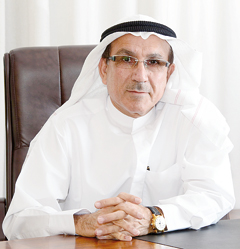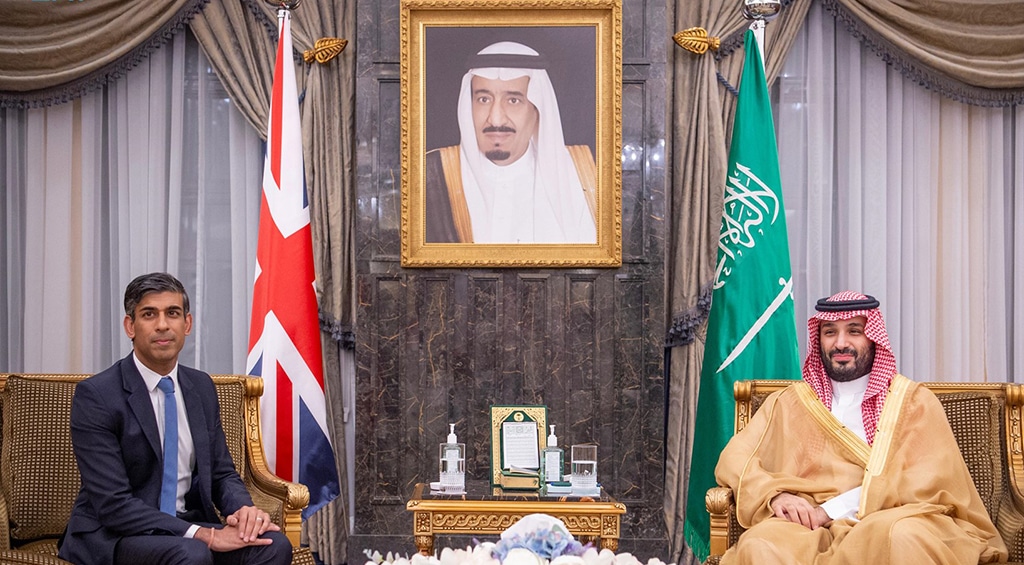 Hussain Shehab
Hussain ShehabKUWAIT: The days of easy oil extraction have long since passed with an estimated 13bn barrels of heavy crude oil to be found in Kuwait's oil fields. Central to the government's oil strategy Project Kuwait, heavy oil reserves will be key to achieving the objective of increasing oil production capacity to 4m barrels per day (bpd) by 2020. Crude oil is and will remain the backbone of Kuwait's economy for the foreseeable future. The leading method of producing heavy oil is steam flooding, a type of thermal Enhanced Oil Recovery (EOR) where heat is used to facilitate production of the viscous oil. In Kuwait, planned steam flooding projects will burn large volumes of imported natural gas or other costly fuels to produce steam, which will compromise export revenues and other gas dependent industries. Furthermore, using these fuels in the oil production process contributes heavily to carbon emissions and further increases energy consumption.
At the same time, the country is making significant investments in growing its renewable energy portfolio. His Highness The Amir of Kuwait has outlined his vision of achieving 10 percent of energy capacity through renewables by 2020 and 15 percent by 2030. Renewable energy investments and conventional oil production have always been seen at two competing and opposing ends of the energy spectrum. However, to realize both The Amir's vision and the goals of Project Kuwait, the government must look to cutting edge technology and new initiatives in the conventional sector. The new investment trend of converging renewable energy with conventional oil production is coming of age in many regions around the world and is now a mandatory move for Kuwait to secure its future in both oil and renewable sectors. This idea of converging conventional and renewables may seem out of reach, but one local company has brought this capability to Kuwait.
Founded in 2009, GlassPoint is a leading supplier of solar energy solutions to the oil and gas industry worldwide. The company created a novel concept to reduce the cost of solar thermal energy needed by heavy oilfields, by bringing the solar collectors inside a commercial greenhouse. GlassPoint's solar EOR technology uses the sun's energy to generate steam, reducing a field's EOR gas consumption by up to 80 percent.
Industry veteran Hussain Shehab is at the helm of GlassPoint Kuwait and helped the company establish a local presence back in 2014. "Using solar at large scale in the oilfield gives Kuwait's oil producers an economical and emissions-free alternative to traditional steam flooding and empowers them to contribute to His Highness The Amir's vision for renewable energy," Shehab says.
Low costs
"GlassPoint's technology uses large mirrors to concentrate sunlight and boil water directly into steam. Our mirrors are enclosed in commercial greenhouses, helping us reduce materials and keep costs low. This means a lot to producers especially in the current economic climate," added Shehab. GlassPoint's innovation of bringing the collectors inside the greenhouse eliminates wind load and protects from sand and other harsh desert conditions. It also enables the of use ultra-light weight, thin mirrors or reflectors, which are suspended from the roof of the greenhouse using a fraction of the raw materials compared to outdoor solar thermal systems. This has a flow-on effect on cost reduction-from shipping and installation costs, to using smaller, off-the-shelf motors and drive systems that move the mirrors to track the sun. GlassPoint's technology was designed specifically for the oil and gas industry and has been proven to work on oil fields in the US and here in the Middle East.
The Sultanate of Oman's largest oil producer Petroleum Development Oman (PDO), Royal Dutch Shell and the State General Reserve Fund of Oman have all backed GlassPoint and its solar oilfield technology. A 7MWth pilot project has been fully operational on PDO's Amal oilfields situated in the Omani desert since 2013. The pilot was delivered safely, on time and on budget, and exceeded all performance targets even during severe sandstorms.
Following the success of the pilot, GlassPoint was awarded the commercial-scale project Miraah in 2015 by PDO. Currently under construction, Miraah will be one of the world's largest solar plants delivering over one gigawatt of peak thermal energy, generating 6,000 tonnes of steam per day. Once complete, Miraah will save one of Oman's oil fields 5.6 trillion British Thermal Units (BTUs) of natural gas annually. This same amount of gas could be used to provide residential electricity to 209,000 people. The project is also expected to reduce carbon emissions by over 300,000 tons annually, which is equivalent to taking 63,000 cars permanently off the roads. The benefits Miraah will bring to Oman and its economy seem a natural fit for Kuwait's oil industry and to achieving renewable targets.
"As we've proven in Oman, solar steam is a viable alternative to natural gas for EOR. This is especially relevant to Kuwait because meeting Kuwait's goals for heavy oil production will require burning more natural gas than Kuwait currently burns for power generation and is in contradiction to The Amir's vision for a renewable energy future." Shehab says. Given the ambitious goals set out to diversify the nation's energy mix, ensure energy security, and protect the environment, there is no better time to start than the present for Kuwait to look at alternative oil extraction methods like what GlassPoint offers.











